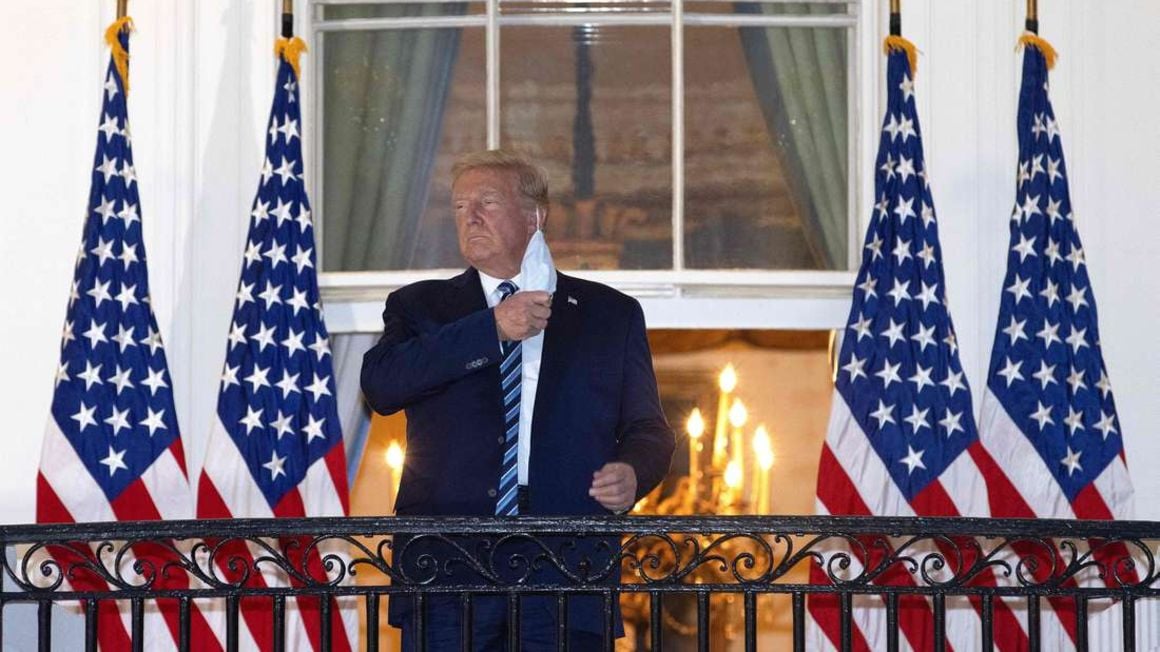
US President Donald Trump. AFP PHOTO
Summary
- The most significant contributing action by Trump was the trade wars he declared on China.
- China was riding high on the World Trade Organization (WTO) principles of globalisation, which Trump strongly challenged in favour of mutually negotiated trade agreements.
- Protracted bilateral trade negotiations between US and China caused uncertainties which resulted in a Chinese economic performance to dip, weakening Chinese oil demands, and global oil prices.
Over the last four years, the world has witnessed shifting geopolitics which have impacted global economic perceptions and performance, while directly and indirectly influencing global oil supply, demand, and prices. To varying degrees, US President Donald Trump of US was associated with many of these events which have reshaped global politics and economics.
The most significant contributing action by Trump was the trade wars he declared on China. Until Trump came on the scene, China was hurtling towards becoming the dominant global economic power and was already embarking on the Belt and Road Initiative (BRI) which targeted carving out identified regions and countries that would eventually come under Chinese economic influence, mostly through debt-based infrastructure partnerships.
China was riding high on the World Trade Organization (WTO) principles of globalisation, which Trump strongly challenged in favour of mutually negotiated trade agreements. Protracted bilateral trade negotiations between US and China caused uncertainties which resulted in a Chinese economic performance to dip, weakening Chinese oil demands, and global oil prices. Together with US shale oil over-production, the trade wars greatly contributed to weakening of global oil markets
Trump trade wars threw China off-balance, prompting a rethink of their global economic, political, and even military ambitions. And this has given the rest of the world an opportunity to rethink their future relationships and strategies with China. And I guess this is an opportunity for Kenya diplomatic and trade officials to re-evaluate trade and economic strategies with China. Perceptions are that it has so far been skewed one-sided deals between Kenya and China, a feature that is unsustainable long term.
President Trump also pulled US out of the Paris Climate Accord, and in so doing he removed urgency and political obligations by US oil industry to align with the ongoing global green energy transition. Riding on Trump “climate denial” policies, US oil firms instead stepped up oil production, making USA the largest world oil producer. This inadvertently caused global oil over-supply and subsequent oil price collapse which is still ongoing.
As the US heads towards the November elections, the US oil industry is on a wait-and-see mode. A Biden election would certainly shift the US oil industry attitudes and actions towards renewable energy, prompting a quicker alignment with their European counterparts (BP, Shell, Total, Eni etc.) which are already in a transition from “oil” to “energy” companies.
Trump’s economic sanctions against Iran and the resultant skirmishes in the Gulf, did upset global oil supply and prices. However, these impacts were soon balanced out by crude oil over-supply caused by US shale oil, and by reduced oil demands in China which was undergoing stress from US tariff wars.
Clearly, the unintended consequence of both the US trade wars with China and the Iranian economic sanctions was the quickly assembled political, economic, and military alliance between Russia, China, and Iran. This looks like a new Eastern power block that USA may have to contend with in the future. Yes, at a time when the Western power block has been significantly weakened by Trump’s poor relations with the European Union.
Russia has recently been expanding its oil and gas export capacity to China, while Russia and China have continuously helped Iran to move its US sanctioned oil into global exports. The trio (China, Russia, and Iran) have also co-operated to counter USA control of Gulf oil supply logistics.
Europe which is dependent on oil and gas imports is becoming a pawn in the US and Russia competition for the exports of natural gas (from Russia) and LNG (from USA).
USA has sanctioned the ongoing Russian Nord Stream 2 natural gas export pipeline via the Baltic Sea to Germany, with a view to protecting US LPG exports to Europe. However, latest indications are that the Russians will complete the pipeline project despite US sanctions.
Yes, a lot hinges on the outcome of the forthcoming US elections as the two candidates, Trump, and Biden, hold varying views on many global issues including energy policies. That is why the entire world, and specifically Russia and China, are keenly watching the US elections. Even the oil markets have become sensitive to US elections.





No comments :
Post a Comment